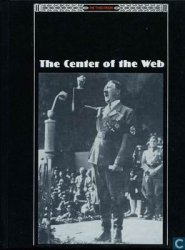In the 1990s, the government began to nurture urban
support by reducing the rate of inflation and guaranteeing
the availability of consumer goods in great demand
among the rising middle class. Under Deng’s successor,
Jiang Zemin (b. 1926) who served as both party chief and
president of China, the government promoted rapid economic
growth while cracking down harshly on political
dissent. That policy paid dividends in bringing about a
perceptible decline in alienation among the population
in the cities. Industrial production continued to surge,
leading to predictions that China would become one of
the economic superpowers of the twenty-first century.
But problems in rural areas began to increase, as lagging
farm income, high taxes, and official corruption sparked
resentment among the rural populace.
Partly out of fear that such developments could undermine
the socialist system and the rule of the CCP,
conservative leaders have attempted to curb Western
influence and restore faith in Marxism-Leninism. Recently,
in what may be a tacit recognition that Marxist
exhortations are no longer an effective means of enforcing
social discipline, the party has turned to Confucianism
as an antidote. Ceremonies celebrating the birth of
Confucius now receive official sanction, and the virtues
he promoted, such as righteousness, propriety, and filial
piety, are now widely cited as the means to counter antisocial
behavior.
Beijing’s decision to emphasize traditional Confucian
themes as a means of promoting broad popular support for
its domestic policies is paralleled on the world stage,
where it relies on the spirit of nationalism to achieve its
goals. Today, China conducts an independent foreign
policy and is playing an increasingly active role in the region.
To some of its neighbors, including Japan, India,
and Russia, China’s new posture is cause for disquiet and
gives rise to suspicions that it is once again preparing to
assert its muscle as in the imperial era. A striking example
of this new attitude took place as early as 1979, when
Chinese forces briefly invaded Vietnam as punishment
for the Vietnamese occupation of neighboring Cambodia.
In the 1990s, China aroused concern in the region by
claiming sole ownership over the Spratly Islands in the
South China Sea and over Diaoyu Island (also claimed by
Japan) near Taiwan (see Map 11.1).
To Chinese leaders, however, such actions simply represent
legitimate efforts to resume China’s rightful role in
the affairs of the region. After a century of humiliation at
the hands of the Western powers and neighboring Japan,
the nation, in Mao’s famous words of 1949, “has stood up”
and no one will be permitted to humiliate it again. For
the moment, at least, a fervent patriotism seems to be
on the rise in China, actively promoted by the party as
a means of holding the country together. Pride in the
achievement of national sports teams is intense, and two
young authors recently achieved wide acclaim with the
publication of their book The China That Can Say No, a
response to criticism of the country in the United States
and Europe. The decision by the International Olympic
Committee to award the 2008 Summer Games to Beijing
led to widespread celebration throughout the country.
Whether the current leadership will be able to prevent
further erosion of the party’s power and prestige is unclear.
In the short term, efforts to slow the process of
change may succeed because many Chinese are understandably
fearful of punishment and concerned for their
careers. And high economic growth rates can sometimes
obscure a multitude of problems as many individuals will
opt to chase the fruits of materialism rather than the less
tangible benefits of personal freedom. But in the long run,
the party leadership must resolve the contradiction between
political authoritarianism and economic prosperity.
One is reminded of Chiang Kai-shek’s failed attempt
during the 1930s to revive Confucian ethics as a standard
of behavior for modern China: dead ideologies cannot be
revived by decree.
Unrest is also growing among China’s national minorities:
in Xinjiang, where restless Muslim peoples observe
with curiosity the emergence of independent Islamic
states in Central Asia, and in Tibet, where the
official policy of quelling separatism has led to the violent
suppression of Tibetan culture and an influx of thousands
of ethnic Chinese immigrants. In the meantime,
the Falun Gong religious movement, which the government
has attempted to suppress as a potentially serious
threat to its authority, is an additional indication that
with the disintegration of the old Maoist utopia, the Chinese
people will need more than a pallid version of Marxism-
Leninism or a revived Confucianism to fill the gap.
New leaders installed in 2002 and 2003 appear to recognize
the challenge. Hu Jintao (b. 1943), who replaced
Jiang Zemin as CCP general secretary and head of state,
appears to recognize the need for further reforms to open
up Chinese society and bridge the yawning gap between
rich and poor. In recent years, the government has shown
a growing tolerance for the public exchange of ideas,
which has surfaced with the proliferation of bookstores,
avant-garde theater, experimental art exhibits, and the
Internet.




 World History
World History









